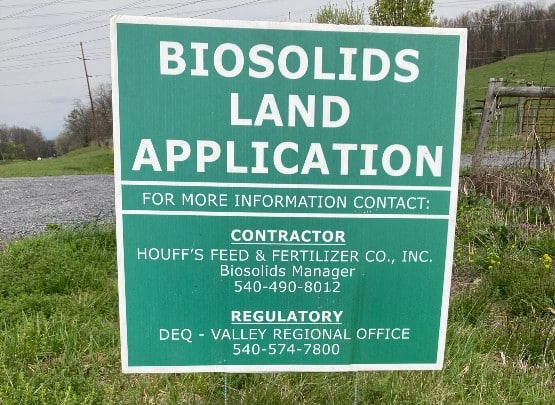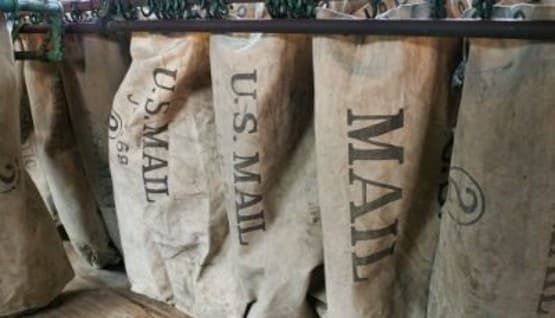
A sign advertising a “biosolids land application” at a property on Route 254 in Augusta County caught the attention of an AFP reader last week.
We wrote in December about another biosolids land application at the same location, near the intersection of Route 254 and Brower Road, three miles west of Waynesboro.
As with that one, the word “application” on the sign doesn’t imply that the property owners, David and Yvonne Rosson of Afton, are seeking permission for something related to biosolids, which the Virginia DEQ defines as sewage sludge that has been “treated to meet the standards established in state and federal regulations for land application, marketing or distribution.”
“These regulations require that the sewage sludge undergo established treatment to meet the pathogen control levels, established treatment and management practices to meet the vector attraction reduction, and contain concentrations of regulated metals below established limits,” an explainer on the DEQ website tells us.
“Only after the sewage sludge has undergone the established treatments and monitoring to become ‘biosolids’ can the material be safely recycled and applied as fertilizer to improve and maintain productive soils and stimulate plant growth.”
The DEQ regulates all land application of these sludge-based biosolids in Virginia, with the Virginia Department of Health playing a role in monitoring the health issues related to biosolids applications.
State and federal regulations require the entity applying biosolids on a property, in this case, Houff Corporation, to post signs at land application sites at least five business days before biosolids are delivered to the site, and keep them up for at least 30 days after the application is completed, according to Irina Calos, the communications team lead for the DEQ.
Houff staff indicated to the DEQ that a notification sign was posted at this location on April 2, and there are plans to spread the biosolids in late April or early May, Calos told us.
The biosolids originated from the Harrisonburg-Rockingham Regional Sewer Authority and food processing residuals from WhiteWave, Calos said.










